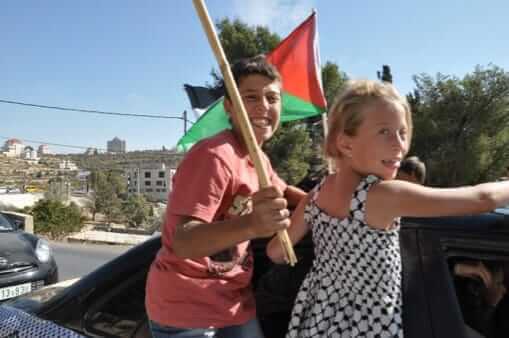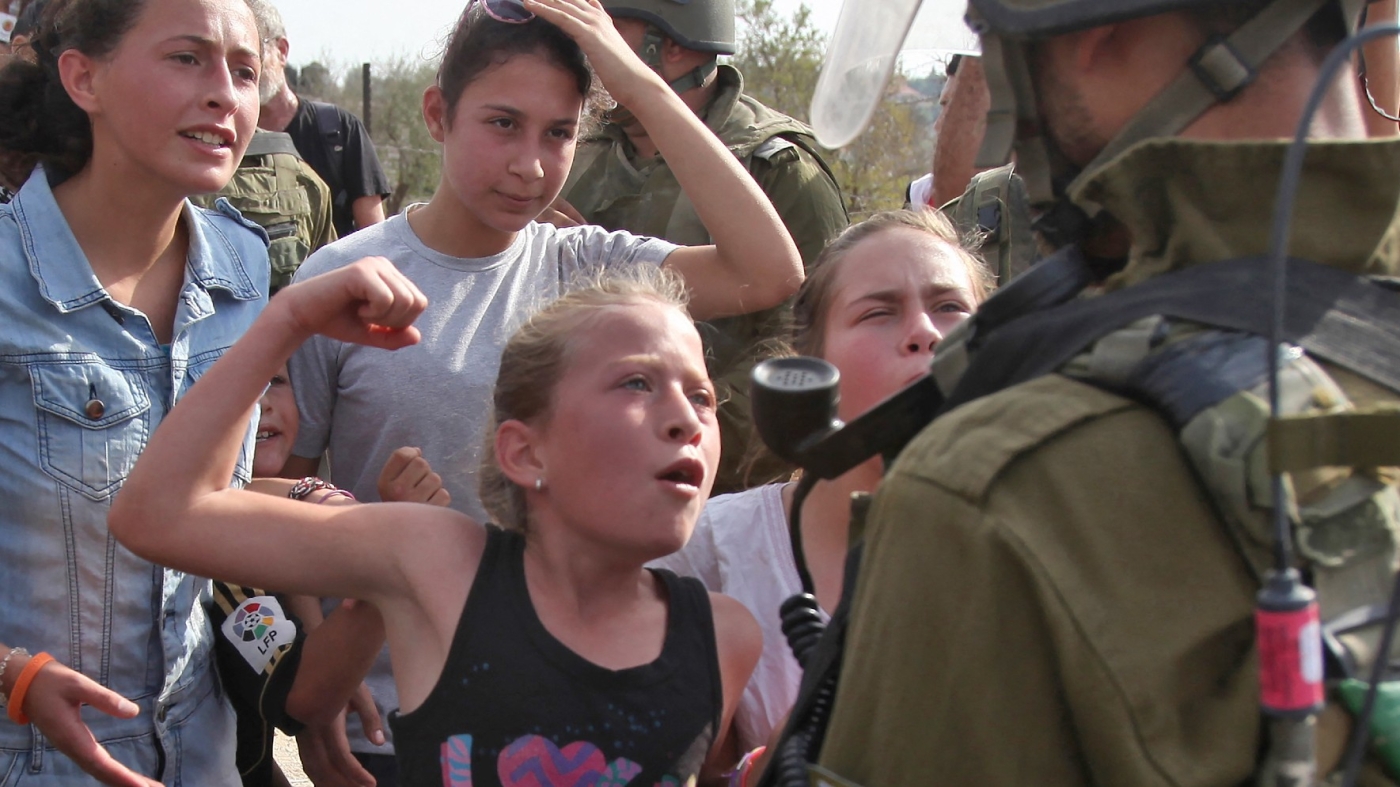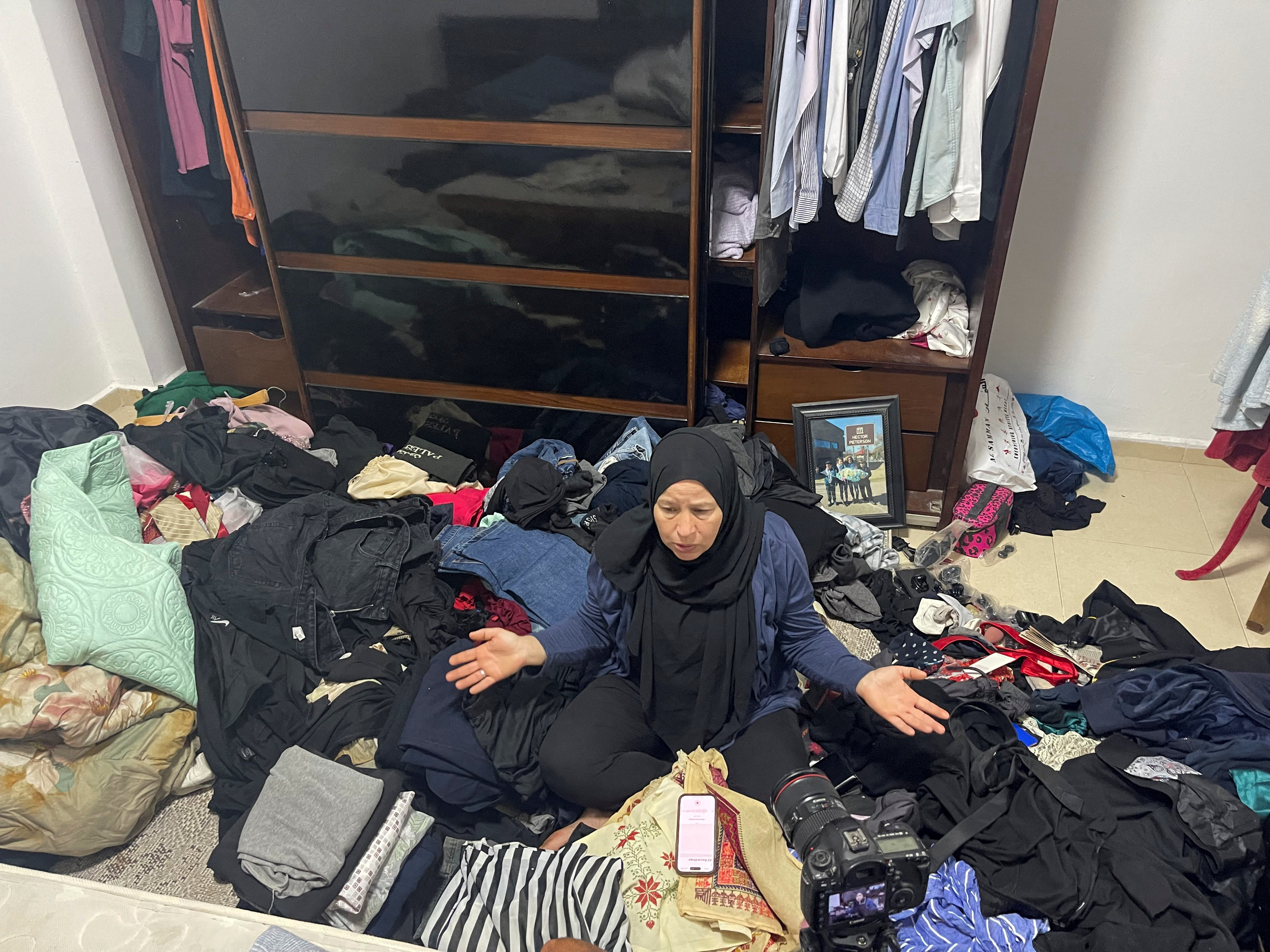
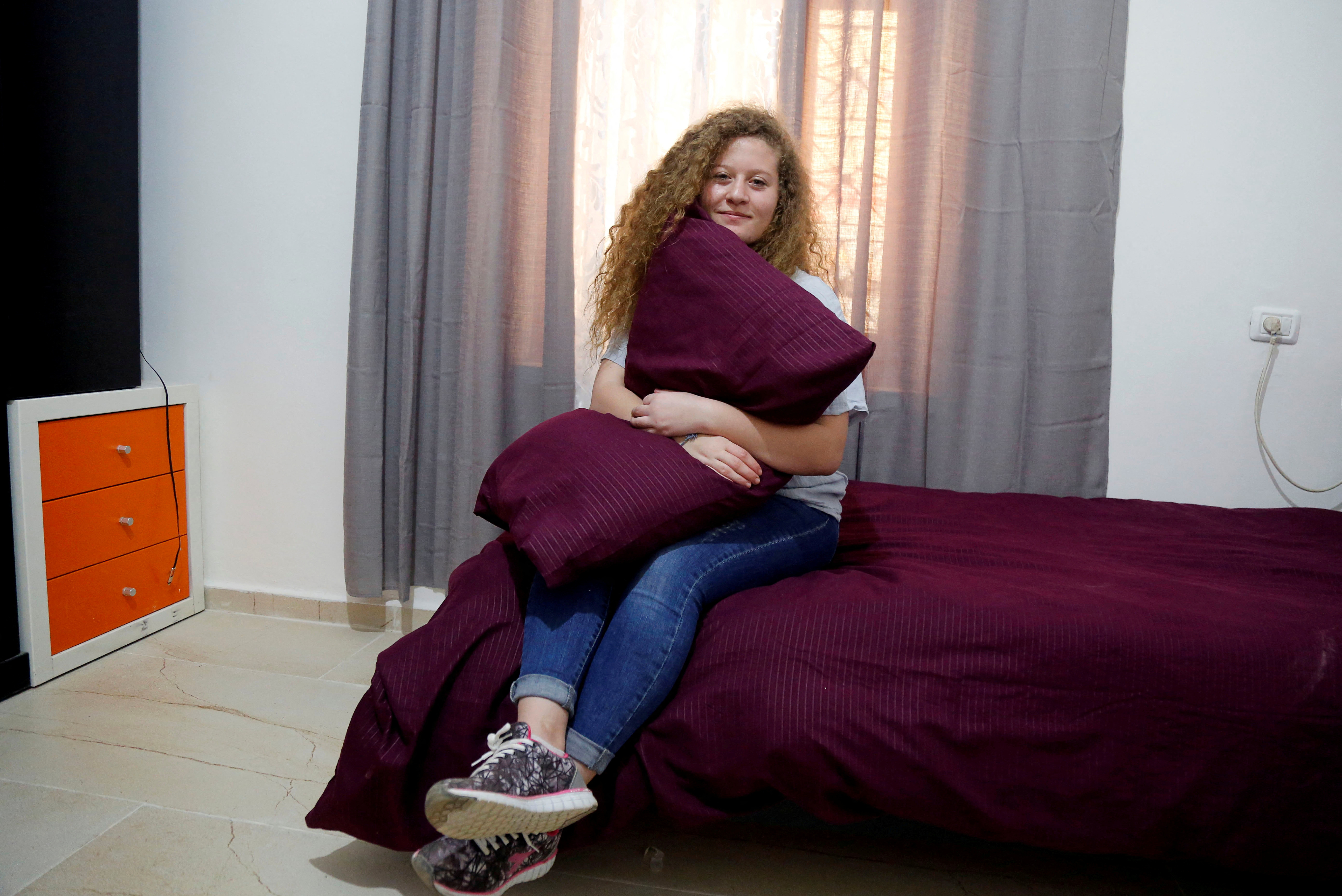
]Palestinian teenager Ahed Tamimi, who was released from an Israeli prison on Sunday, holds her pillow as she sits on her bed in her room in Nabi Saleh village in the Israeli-occupied West Bank July 30, 2018.
Published November 7, 2023
Israeli troops have arrested a Palestinian activist, regarded in the occupied West Bank as a hero since she was a teenager, on suspicion of inciting violence, but her mother denied the claim and said it was based on a fake Instagram post, Reuters reports.
The Israeli military said it apprehended Ahed Tamimi, 22, in the West Bank village of Nabi Saleh.
Tamimi rose to prominence in 2017 when, at age 16, she slapped an Israeli soldier who raided her village. She and others have for years protested Israeli land seizures.
Tamimi “is suspected of inciting violence and calling for terrorist activity to be carried out,” the military said.
The prominent Palestinian activist Ahed Tamimi has been arrested by Israeli forces in the occupied West Bank.
Ms Tamimi, 22, was detained overnight in the village of Nabi Saleh, the Palestinian Prisoners' Society said.
Israel's military told AFP news agency she was suspected of "inciting violence and terrorist activities".
Israeli media reported that Ms Tamimi was arrested in connection with a post on Instagram that threatened to "slaughter" Jewish settlers.
"[By comparison] you will say that what Hitler did to you was a joke," she is purported to have written, referring to the mass murder of six million Jews in the Holocaust by Adolf Hitler's Nazi Germany, according to the newspaper Haaretz.
The post is no longer visible online, nor is the account carrying Ms Tamimi's name and photo where it was published last week.
Israel's far-right National Security Minister, Itamar Ben-Gvir, posted a photograph on X, formerly known as Twitter, that appeared to show an Israeli soldier restraining Ahed Tamimi in a bedroom.
He accused her of expressing "sympathy and support for the Nazi human beings on social media" and vowed: "Zero tolerance with terrorists and supporters of terrorism!"
However, Ms Tamimi's mother, Nariman, denied that she wrote the post.
"There are dozens of [online] pages in Ahed's name with her photo, with which she has no connection," she told AFP.
Ahed Tamimi became an international symbol of resistance to Israel's occupation as a teenager.
In 2015, the then-14-year-old was photographed biting an Israeli soldier who was trying to detain her younger brother.
Two years later, she was arrested after being filmed slapping and kicking an Israeli soldier during a confrontation outside her home. An Israeli court subsequently sentenced her to eight months in prison.
The Palestinian Prisoners' Society said Ms Tamimi was one of at least 70 Palestinians arrested in Israeli raids across the West Bank and occupied East Jerusalem on Sunday night.
That raised to 2,150 the total reportedly detained there since 7 October, when Hamas gunmen from the Gaza Strip carried out an unprecedented attack on Israel in which 1,400 people were killed and 240 were taken hostage.
Israel has bombarded Gaza continuously since then and sent in ground forces more than a week ago with the aim of destroying Hamas. More than 9,700 people have been killed in Gaza, according to the Hamas-run health ministry.
The West Bank has seen an alarming surge in violence at the same time.
According to the UN, 141 Palestinians have been killed by Israeli forces, most of them during confrontations that followed Israeli search-and-arrest raids or during protests in solidarity with Gaza.
It says eight others have been killed by Israeli settlers, who human rights groups have accused of escalating a campaign of violent attacks on Palestinian communities.
Two Israelis have been killed by Palestinians over the same period.
BY HALEY OTT
NOVEMBER 6, 2023 / CBS NEWS
The Israel Defense Forces said it arrested prominent 22-year-old Palestinian activist Ahed Tamimi on Monday during a raid in the West Bank town of Nabi Saleh. The IDF said Tamimi was "suspected of inciting violence and calling for terrorist activity to be carried out," and that she was "transferred to Israeli security forces for further questioning."
An Israeli military official forwarded CBS News a screenshot of what they called "an example of Ahed Tamimi's inciting violence from her social media account."
The post, which appears to be an Instagram story posted by the account "ahed_tamimi15," shows text in Hebrew and Arabic threatening the murder of Israeli settlers and referring to Hitler.
CBS News has been unable to independently verify that the account belongs to Tamimi. Her mother, Nariman al-Tamimi, told the AFP news agency that her daughter did not write the post.
"There are dozens of (online) pages in Ahed's name with her photo, with which she has no connection," Nariman al-Tamimi told AFP.
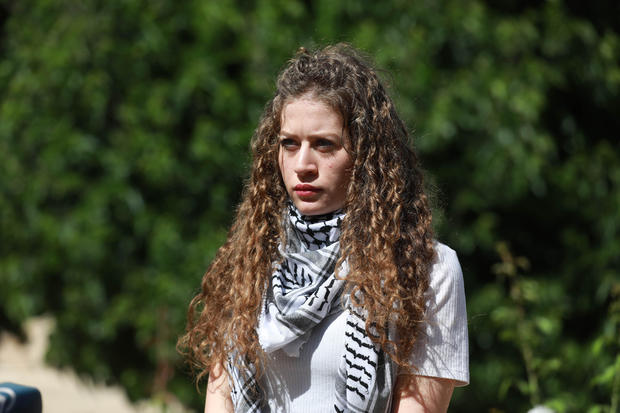 Palestinian protester Ahed Tamimi speaks during an interview in Ramallah, West Bank on May 16, 2021.
Palestinian protester Ahed Tamimi speaks during an interview in Ramallah, West Bank on May 16, 2021.Ahed Tamimi became famous at age 14 when she was filmed biting an Israeli soldier who was pushing her then 12-year-old brother down on a rock. She was then arrested in 2017 for slapping and kicking two Israeli soldiers who were in the yard of her family home after telling them to leave. She was sentenced to eight months in jail for assaulting the troops.
"We hope that this generation will be stronger than us, and can take the flag from us with more power and more serious resistance to end the [Israeli] occupation," Ahed's father Bassem Tamimi, a longtime Palestinian activist, said at the time of her arrest in 2017.
Issued on: 06/11/2023 -
Jerusalem (AFP) – With her mane of curly hair and piercing eyes Ahed Tamimi, arrested on Monday for allegedly inciting violence and terrorism, is for Palestinians and their supporters an icon of resistance to Israeli occupation.

Images of the now 22-year-old's defiance have been beamed across the world for over a decade: aged 11 brandishing her fist under the nose of Israeli soldiers, aged 14 fighting to free a detained boy, aged 16 in prisoner's clothing surrounded by Israeli police.
Her family home in Nabi Salih in the north of the West Bank -- territory occupied by Israel since 1967 -- is a hotbed for Palestinian and foreign activists organising against raids by Israeli forces and settlers.
Since the start of the Israel-Hamas war on October 7, deaths and arrests have spiked in the West Bank, with more than 150 Palestinians killed according to the health ministry there.
'Something heavy that I carry'
Tamimi is currently under interrogation for an Instagram post which, according to an Israeli security source, called for a massacre of Israelis in the West Bank and made reference to Hitler.
But her mother Narimane Tamimi -- whose husband has also been in prison the past two weeks -- denies that she wrote the post and added that "when Ahed tries to open a social media account, it's immediately blocked".
AFP was not immediately able to verify whether the Instagram account in question, which was blocked on Monday morning, actually belonged to Tamimi.
Her arrest is the latest turn in a war over the campaigning of the young activist who spent eight months in an Israeli prison in 2018.
"Every word I say, it's a weight, a responsibility, and so it's something heavy that I carry," she told AFP in France in 2018.
Her activism earned her a reception by Real Madrid that year.
But the Israeli press has dismissed her as "a provocateur who knows how to publicise her actions" and her family have been accused of exploiting her for political means.
Michael Oren, a former Israeli ambassador to the United States, alleged in 2017 that the family "dresses up kids in American clothes and pays them to provoke (Israeli) troops on camera".
"This cynical and cruel use of children constitutes abuse," he said on social media site X, formerly known as Twitter.
In mobile phone footage filmed in December 2017 she is seen with her cousin approaching two soldiers her family said were trespassing in their house before kicking, punching and slapping them.
She was also photographed while wearing a Tweety Pie shirt and biting the hand of an Israeli soldier in 2015, trying to stop the arrest of her brother.
In 2012, images of her brandishing her fist under the nose of Israeli soldiers earned her a meeting with Turkish Prime Minister Recep Tayyip Erdogan.
Born in 2001 in Nabi Salih, she said she dreamed of becoming a footballer before being drawn into activism.
Her father Bassem Tamimi described his daughter as "shy", but "someone who is mature enough to reject the occupation responsibly".
He said his daughter was marked by stories of incursions and arrests by Israeli forces, and that the family had several "martyrs", including Ahed's uncle and aunt.
Following her arrest on Monday social media, particularly in Arab countries, was once again flooded with images of the young activist.
© 2023 AFP
The 22-year-old Palestinian icon is arrested on another night of Israeli raids in the occupied West Bank.

Israeli forces have arrested Ahed Tamimi, a prominent 22-year-old Palestinian activist, for “inciting terrorism”.
They announced the arrest on Monday following another round of overnight raids and fighting in the occupied West Bank. Violence has been spilling over into the territory since the start of the Israel-Hamas war last month.
Al Jazeera correspondent Zein Basravi reported multiple raids by the Israeli army across the West Bank, including in the village of Nabi Saleh, near Ramallah, where Ahed Tamimi was arrested.
The activist “was arrested on suspicion of inciting violence and terrorist activities”, an army spokesperson said. “Tamimi was transferred to Israeli security forces for further questioning.”
Nariman Tamimi, the activist’s mother, told Anadolu news agency that Israeli forces had searched the house and confiscated the mobile phones of the family members. Her father Bassem Tamimi was arrested by Israeli forces during a raid in the town last week, with no information of his whereabouts.
Israeli media reported that Ahed Tamimi had called for the murder of settlers in the West Bank in an Instagram post. An Israeli security source shared the alleged Instagram post with AFP when questioned about the reason for her arrest.
However, Nariman denied that her daughter wrote the post. “There are dozens of (online) pages in Ahed’s name with her photo, with which she has no connection,” she said.
The Israeli army celebrated Ahed Tamimi’s arrest, publishing a picture on Facebook and asking: “Where is her smile now?”
Family of activists
Tamimi and her family members are well-known activists and have led Nabi Saleh’s non-violent resistance for nearly a decade.
Her father has been arrested numerous times by Israeli forces and has spent at least four years in prison.
Ahed Tamimi became an icon of Palestinian resistance since a video of her 2012 confrontation with an Israeli soldier, who had arrived at the family house to arrest her brother, went viral.
She was previously arrested by the Israeli army in December 2017 following further confrontations, alongside her mother and 20-year-old cousin Nour.
Indicted on 12 charges, including assault, incitement and past instances of stone-throwing, she was jailed for eight months.
Overnight raids
Ahed Tamimi’s arrest came amid another night of Israeli raids and fighting in the occupied West Bank, with the occupying forces intensifying nightly raids on Palestinian homes, villages and cities in the occupied West Bank and East Jerusalem.
Reporting from Ramallah, Basravi said it was a hectic night, with multiple cities across the West Bank witnessing raids and open clashes between the army and armed Palestinian fighters. Footage showed roads and cars destroyed.
At the Shuafat refugee camp, one of the largest military raids took place. It is known to be home to several Palestinian armed groups. The Israeli army arrested an adviser to the Palestinian Authority (PA) government and Fatah member Rafat Alian was detained during a live interview.
Israel has arrested about 1,740 Palestinians in overnight raids in the occupied West Bank and East Jerusalem since October 7.
Most are being held under laws and military orders that allow detention without trial or charge.
KEEP READING
Crisis in the West Bank
Monjed Jadou, Tuesday 7 Nov 2023
Israeli settler violence is soaring in the West Bank under the protection of the Israeli military as economic collapse looms, reports Monjed Jadou from Ramallah
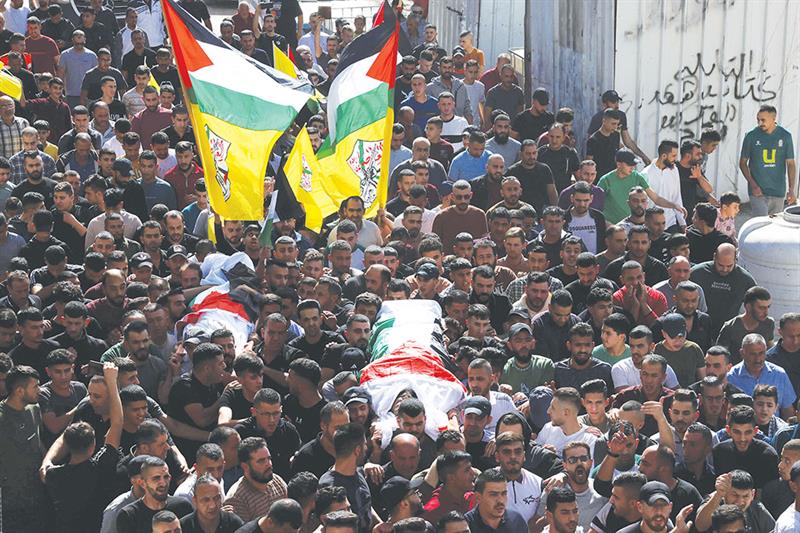
The West Bank and Occupied Jerusalem have been experiencing difficult conditions since the Israeli aggression on the Gaza Strip started some four weeks ago, claiming the lives of some 10,000 Palestinians, including 5,000 children, 2,500 women, and about 1,000 elderly people.
Over 30,000 Palestinians have been injured in this genocidal war waged by Israel on Gaza under the pretext of responding to the 7 October operation by the Palestinian group Hamas that resulted in the killing of around 1,500 Israelis and the injuring of nearly 10,000 others as well as the capture of around 250 detainees.
Palestinians living in the West Bank and Jerusalem, the other part of the Occupied Palestinian Territories, are also experiencing difficult conditions. There has been a daily death toll since 7 October, with 155 deaths so far, along with more than 1,000 others injured. The numbers continue to rise due to ongoing confrontations with Israeli settlers, raids, and arrests that occur on a daily basis.
The Palestinian leadership, represented by Palestinian President Mahmoud Abbas, is being subjected to systematic campaigns accusing him of supporting what Israel calls terrorism. The right-wing Israeli government led by Prime Minister Benjamin Netanyahu has launched campaigns against the Palestinian Authority (PA), including by claiming that it supports the terrorism represented by the Hamas Movement.
These accusations aim to cover up the fact that the Hamas attack from Gaza resulted from policies that encroach on Muslim holy sites, the ongoing settlements in the Palestinian Occupied Territories, and the killings and arrests in the West Bank. Meanwhile, the international community is calling for the implementation of an end to the occupation, something that Israel considers as an existential threat if not an opportunity to get rid of the Palestinian leadership entirely.
Recent measures taken by the occupation against the PA include threats from right-wing Israeli ministers to expel it from the West Bank and hold it accountable for the actions of Hamas. One recent action was Israel’s decision to seize the Palestinian tax revenues collected by Israel at border crossings.
In contrast to such policies, the Palestinian leadership, in cooperation with the Arab countries and friends around the world, is continuing its diplomatic efforts along three tracks. The first is to stop the Israeli aggression, the second is to establish a humanitarian corridor in Gaza, and the third is to find a diplomatic solution to the roots of the conflict by establishing an independent Palestinian state according to the two-state solution.
The Palestinian leadership continues to hold meetings with various international parties, including the United States.
Palestinian diplomatic sources told Al-Ahram Weekly that the Palestinian leadership is ready to work with all international parties, including those that have taken a supportive position towards Israel, in order to reach a ceasefire and protect Palestinian lives in Gaza and the West Bank.
The sources indicated that the Palestinian leadership seeks to protect the West Bank, where the Israeli occupation plans to escalate the situation and give the occupying forces the opportunity to destroy everything that has been built in recent years as part of preparations for the establishment of a Palestinian state.
“All the cities in the West Bank have been witnessing mass protests and marches condemning the brutal air strikes targeting the Palestinian people in Gaza since the beginning of the Israeli aggression,” the sources said.
“These reach a peak on Fridays each week, along with the swift actions of Palestinian citizens following the Israeli airforce’s massacres targeting civilians, including children and women, in Gaza. This situation makes the West Bank volatile and prone to explode at any moment.”
Israel imposed comprehensive closures on the West Bank in the early days of the war, including closing the borders with Jordan, shutting down crossings between West Bank cities and Jerusalem, and cutting off communications between West Bank cities by installing barriers at their entrances.
This affects the movement of the Palestinian population, with some cities being isolated from one another and others cut off from surrounding towns. Citizens report that Israeli forces at checkpoints deliberately delay them for hours, sometimes committing attacks against them.
Joseph Handal, an English-language TV channel cameraman, was assaulted, threatened, had some of his equipment confiscated, and was later beaten and forced to leave at the Container Checkpoint between Ramallah and Bethlehem, for example.
Israel occasionally still opens the crossings with Jordan, the only ones available for Palestinians to travel to the outside world, but only for specific hours. During their transit, Palestinians are subjected to frequent questioning and ID checks. Hundreds of violations have been documented at Israeli military checkpoints.
Israel’s closure of the checkpoints and brutal behaviour have had various effects on the lives of Palestinians. Palestinian workers and employees in the West Bank are unable to reach their workplaces in Jerusalem and Israel. There have been hundreds of documented violations at military checkpoints, from delays to humiliating treatment. These closures have limited freedom of movement and access to essential services.
ARREST CAMPAIGNS: The West Bank has witnessed ruthless Israeli arrest campaigns and raids since the beginning of the war on Gaza. These arrests have been marked by violent break-ins, including the brutal beatings of prisoners and detainees.
Abdullah Al-Zghari, head of the Palestinian Prisoners Association, said that more than 2,000 Palestinians have been arrested in the West Bank and Jerusalem as part of a brutal arrest campaign. This is characterised by the use of physical violence against detainees during the arrests. Israeli soldiers document their attacks against Palestinian young people and post videos on Israeli social media sites to show off their actions.
Al-Zghari said that convicted prisoners also face retaliatory attacks by the Israeli Prison Service. Prisons have been raided and prisoners’ belongings seized, leaving them with only one set of clothes in some cases. Soldiers from the Israeli Prison Service conduct roll call for prisoners every morning and evening and continuously beat and degrade them.
The Prisoners Association, the PA’s Prisoners’ Affairs Commission, human-rights organisations, and the families of prisoners are calling on the Red Cross to fulfill its responsibilities towards Palestinian prisoners of war according to international agreements.
It is the responsibility of the Red Cross to stop these attacks and ensure that Israel complies with international agreements. However, the organisation has not always taken on this role and does not always announce Israel’s violations of the rights of Palestinian prisoners, prompting some Palestinian activists to close some Red Cross offices in protest at their inaction.
Israeli settlers on the West Bank have also increased their attacks on Palestinians during the ongoing war, and the mobilisation of the Israeli reserves has had repercussions on the Palestinians, according to Munther Amira, head of the Wall and Settlement Resistance Committees in the West Bank.
Amira told the Weekly that hundreds of settlers have joined the Israeli forces, ramping up the already present oppression. The settlers have benefitted from the protection of the Israeli army when preventing Palestinian farmers from going to their work or organising attacks.
Settlers have been reported burning Palestinian homes and vehicles, assaulting farmers, burning agricultural land, and preventing them from accessing their land.
Amira said that these practices, backed by the Israeli government, have led to the isolation of villages and in some cases have led to forced displacement due to fears of attacks. He said it was important for the international community, the Arab countries, and human rights organisations to take action to stop these attacks, which could be no less dangerous than the ongoing ethnic cleansing in Gaza.
He noted that the West Bank is witnessing attacks on Palestinian farmers, popular resistance activists, and human rights defenders. Settlers wearing Israeli army uniforms attacked two activists from the popular resistance at Wadi Al-Siqa near Ramallah, for example, when they were subjected to abuse and beating, detained for hours, stripped of their clothes, and urinated on.
Meanwhile, due to the closures, arrests, and separation of urban areas, the West Bank is experiencing an economic siege that may lead to the collapse of the Palestinian economy. Commercial activities have now been halted for 30 days, and tens of thousands of workers have been unable to work in Israel, a primary source of income, causing a significant decline in the Palestinian economy.
Another reason for the economic collapse is Israel’s decision to pirate Palestinian funds, which means that 170,000 civilian and military employees of the PA will not receive their salaries.
Rida Nairokh, an industrialist in the Bethlehem Industrial Area, explained that the Palestinian economy in the West Bank cannot withstand such challenges. The closures, the blockade, and the checkpoints have led to a halt in the flow of raw materials, he said, and workers from the West Bank have been prevented from reaching their workplaces.
Products cannot be sent to market, leading to factory work being reduced by up to 70 per cent, Nairokh said, adding that factories are unable to meet their obligations, whether to workers or consumers, leading to the seizing up of the broader economy.
All this highlights the urgent need for intervention to stop the Israeli military aggression on Gaza, characterised by the use of military aircraft and heavy artillery as part of a genocidal war against the Palestinians. Meanwhile, the Israeli occupation of the West Bank is working more quietly to achieve the same goals but with less intensity.
* A version of this article appears in print in the 9 November, 2023 edition of Al-Ahram Weekly








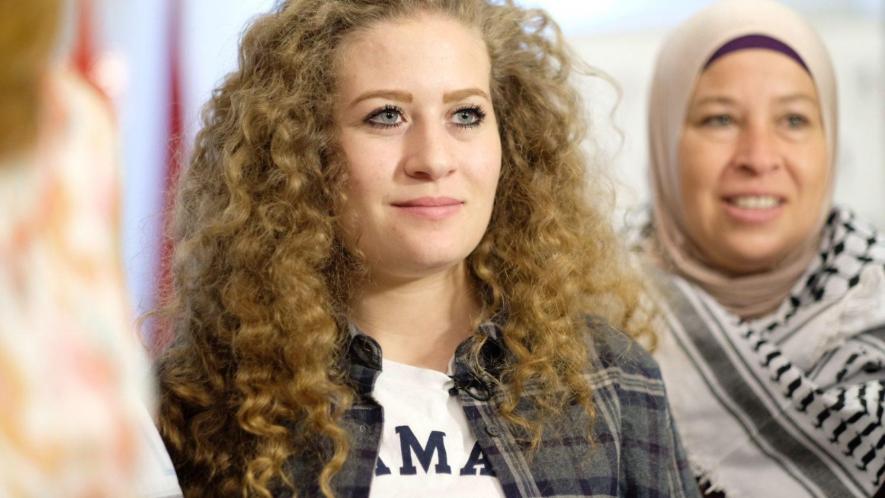

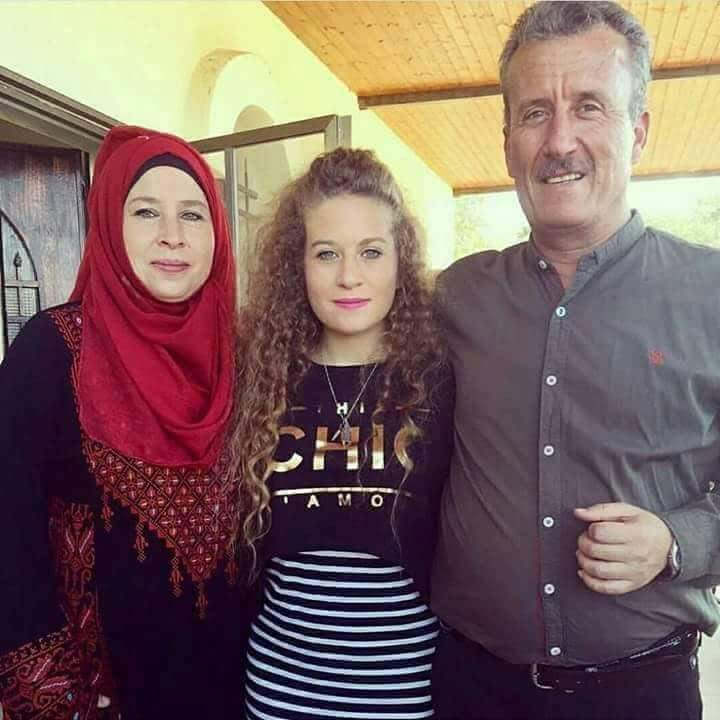
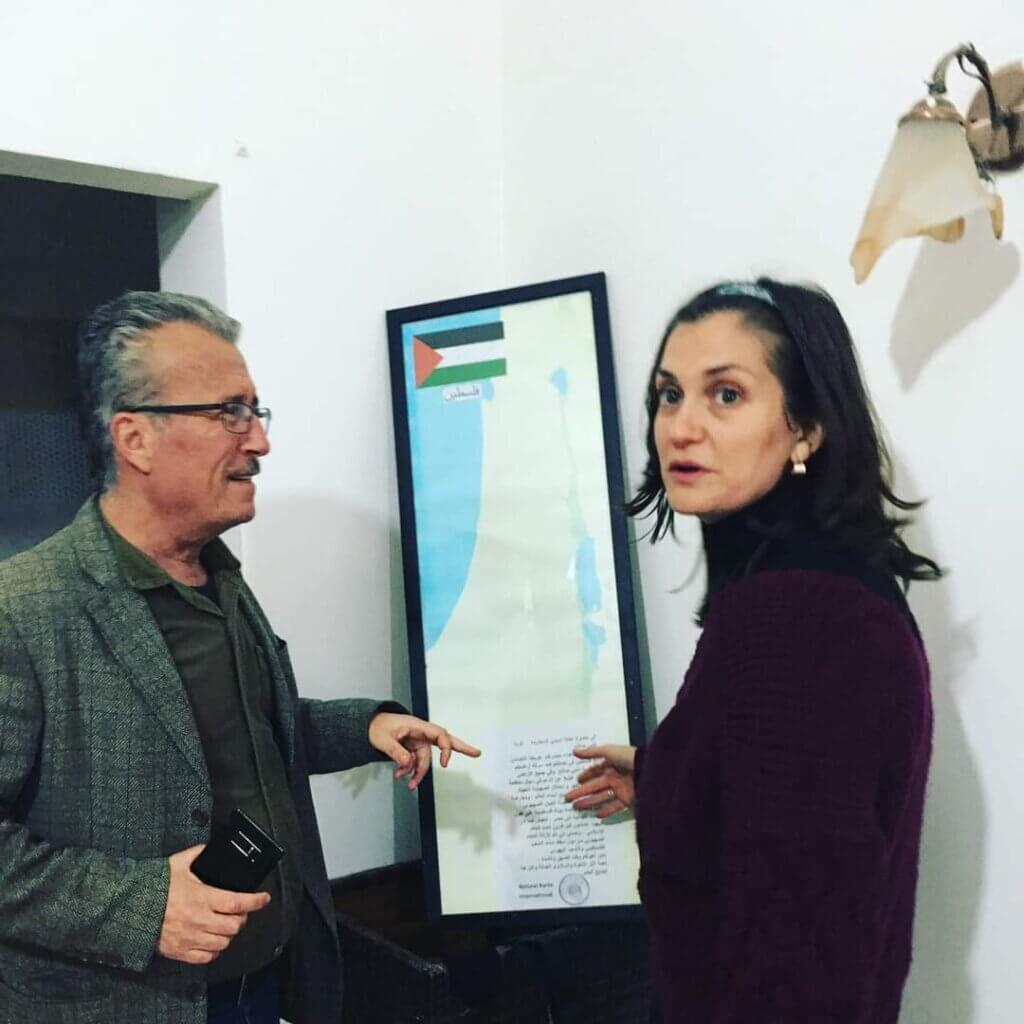 BASSEM TAMIMI AND ALISON AVIGAYIL RAMER IN 2011
BASSEM TAMIMI AND ALISON AVIGAYIL RAMER IN 2011